In the wake of the AI revolution, the role of teachers in the AI era is at a pivotal juncture. The proliferation of artificial intelligence (AI) technologies in educational systems promises unprecedented opportunities for learning, but it also presents a profound challenge to the conventional role of teachers.
As AI-driven platforms and algorithms permeate classrooms, educators are faced with the daunting task of redefining their roles to remain relevant in this rapidly evolving landscape.
Agitate: The Erosion of Traditional Pedagogy
Traditionally, teachers have been revered as the primary disseminators of knowledge, guiding students through a curated curriculum and imparting essential skills. However, the advent of AI threatens to disrupt this age-old paradigm.
With AI-powered tools offering instant access to vast repositories of information, the need for traditional knowledge transmission diminishes.
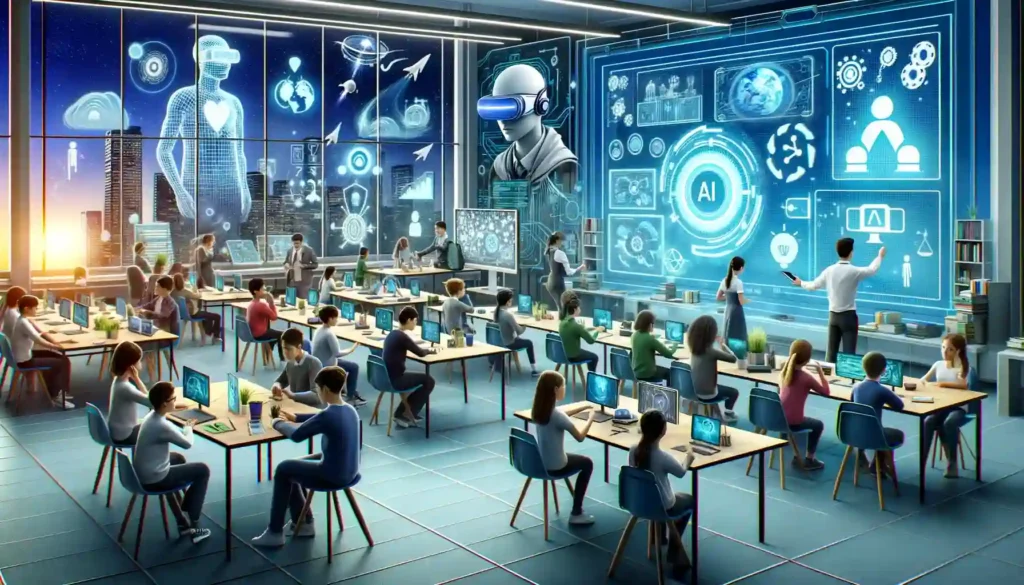
As a result, teachers are experiencing an existential crisis and questioning their value and relevance in an educational ecosystem that is becoming more and more dominated by algorithms and data.
According to a report by UNESCO, AI has the potential to address some of the biggest challenges in education today, but it also poses significant risks and challenges to the conventional role of teachers as knowledge disseminators.
Furthermore, the sheer volume of information available in the digital age poses a significant challenge to students. Navigating through this sea of data requires advanced critical thinking and information literacy skills, which are often inadequately addressed in traditional educational frameworks.
Without proper guidance, students risk succumbing to misinformation, disinformation, and cognitive overload, undermining the very essence of education.
As a study by Cambridge University Press argues, the use of AI in education requires students to develop critical thinking and information literacy skills to navigate the complex and often unreliable information ecosystems.
Embracing the Role of Teachers in the AI Era: A New Paradigm
Amidst this turbulent landscape, the role of teachers undergoes a profound transformation. No longer confined to the role of knowledge disseminators, educators emerge as facilitators, mentors, and curators of learning experiences.
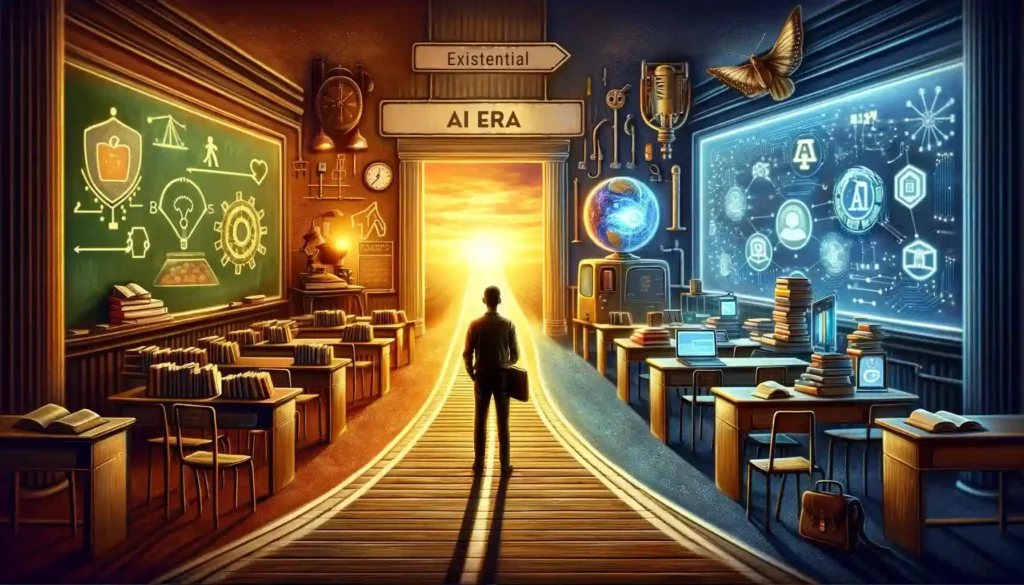
By leveraging AI technologies, teachers can orchestrate dynamic and personalized learning environments tailored to the diverse needs and interests of their students.
Empowering Critical Thinking
In the era of AI, fostering critical thinking skills becomes paramount. Teachers must equip students with the ability to discern between credible and unreliable sources, navigate complex information ecosystems, and think critically about the implications of AI-driven technologies.
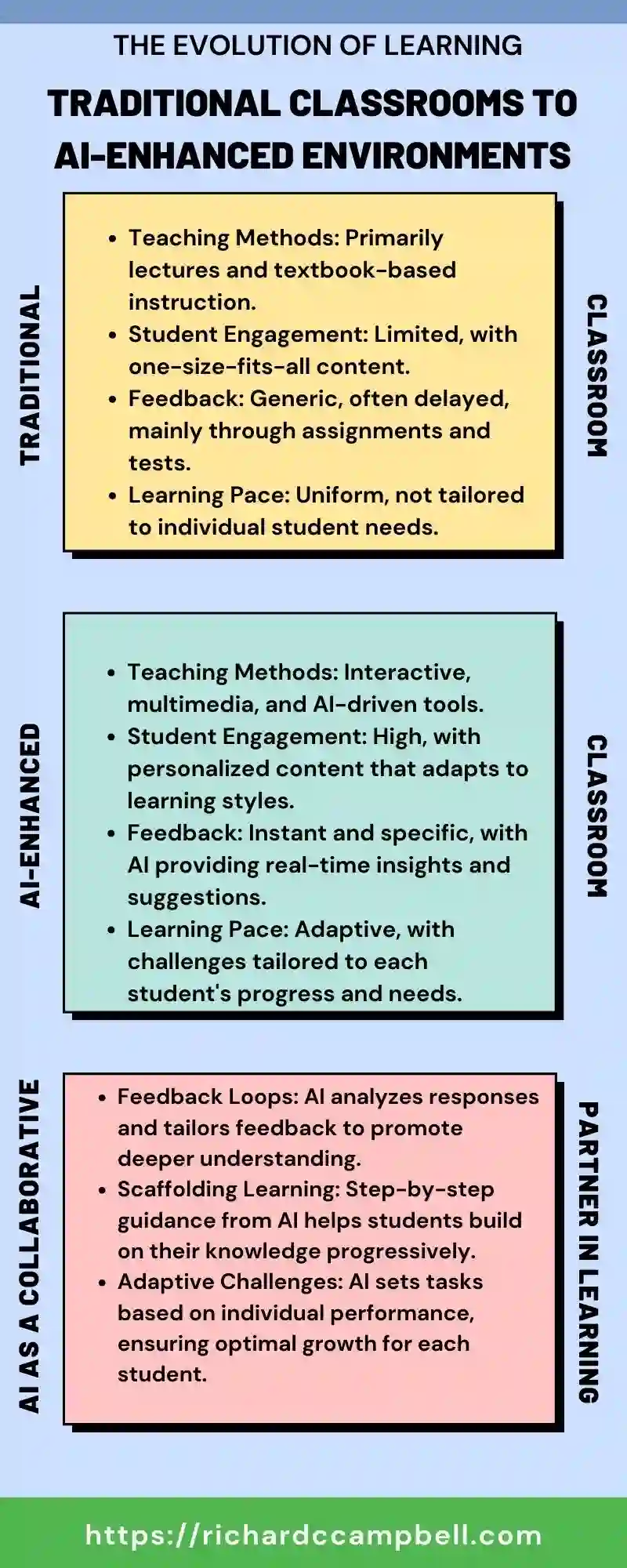
By incorporating AI tools into the curriculum, educators can provide students with hands-on experience in analyzing, evaluating, and synthesizing information, thereby empowering them to become discerning consumers and producers of knowledge.
A study by Teachflow.ai suggests that AI can help teachers foster critical thinking skills among students by providing feedback, scaffolding, and adaptive learning.
Cultivating Curiosity and Creativity
Beyond cultivating critical thinking skills, teachers play a crucial role in nurturing curiosity and creativity in students. In an age where AI excels at routine tasks and problem-solving, human creativity emerges as the ultimate differentiator.
By fostering a culture of curiosity, exploration, and experimentation, teachers can inspire students to push the boundaries of their imagination, innovate, and create solutions to complex challenges.
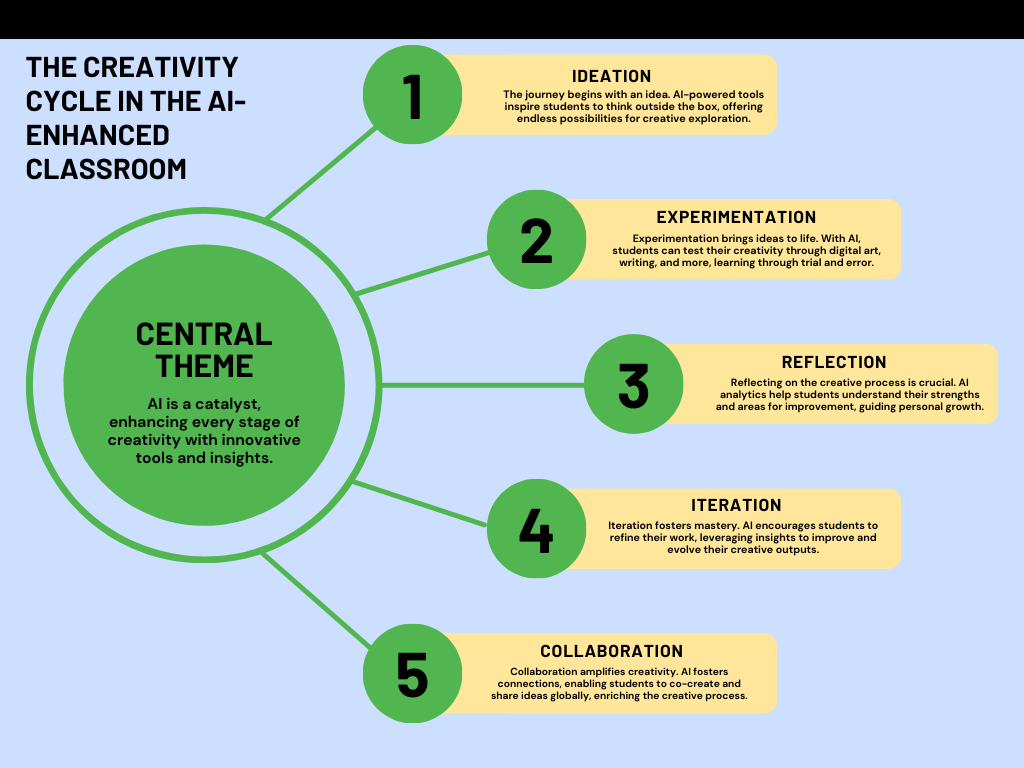
A study by Harvard Business Review proposes that generative AI can augment human creativity by providing new tools and capabilities, enabling teachers to inspire students to explore new ideas and push the boundaries of their imagination.
Safeguarding Well-being and Mental Health
Amidst the relentless march of technological progress, educators must not lose sight of the holistic well-being of their students. The pervasive use of digital technologies in education raises concerns about the potential impact on students’ mental health and well-being.
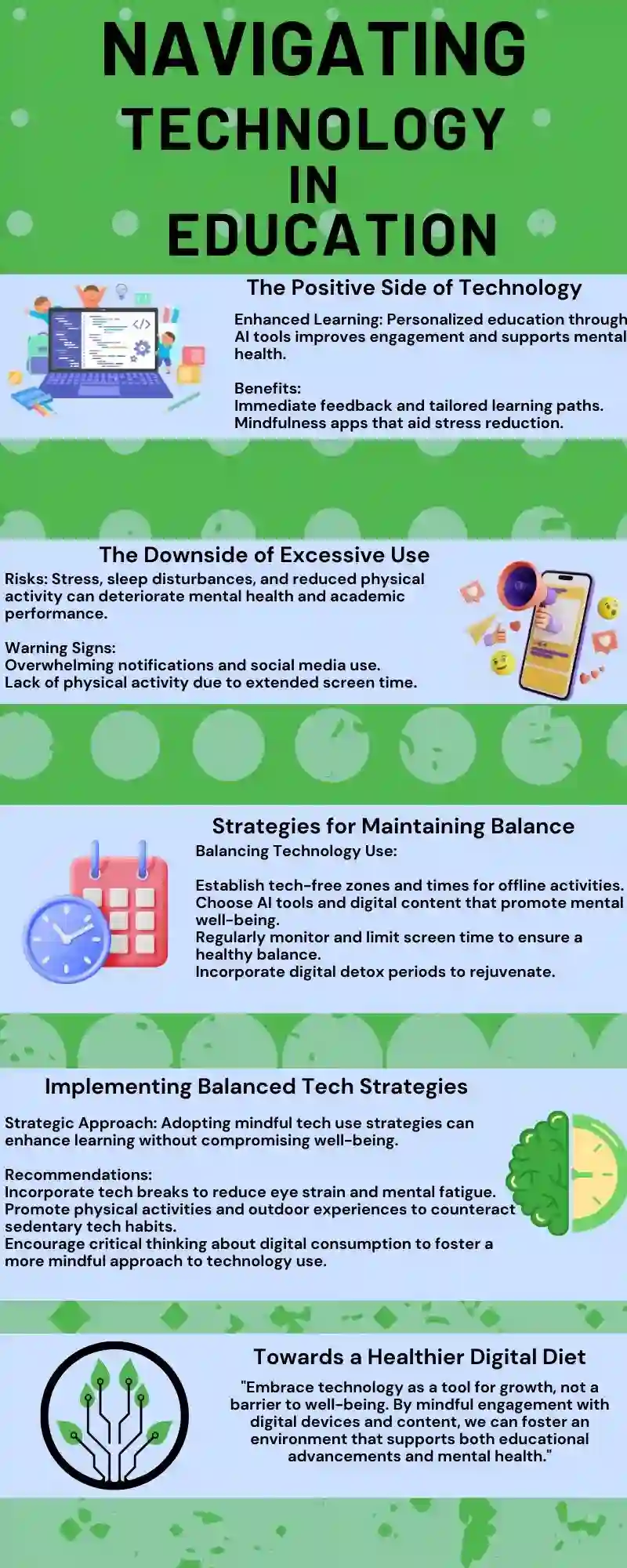
Teachers, therefore, assume the role of empathetic mentors, attuned to the emotional needs of their students and equipped to provide guidance, support, and resources to promote mental health and resilience.
A study by the World Health Organization warns of the need for transparent and validated AI models and data and the importance of involving people with mental health conditions in the development process.
Conclusion: Embracing the Human-Centric Future of Education
In conclusion, the integration of AI in education heralds a paradigm shift in the role of teachers in the AI era. Rather than viewing AI as a threat, educators must embrace it as a catalyst for innovation and transformation.
By reimagining their role as facilitators of learning, cultivators of curiosity, and custodians of well-being, teachers can harness the power of AI to create more engaging, inclusive, and empowering learning experiences for all students.
In doing so, they ensure that education remains a deeply human endeavor, driven by empathy, creativity, and a relentless pursuit of knowledge and growth.
Frequently Asked Questions
What is the role of teachers in artificial intelligence?
Teachers’ role in AI is evolving from traditional knowledge dispensers to facilitators who guide students in using AI tools for learning, fostering critical thinking, creativity, and digital literacy skills, and ensuring the ethical use of technology.
How can AI be used by teachers?
Teachers can use AI to personalize learning, automate grading, provide real-time feedback, and identify student learning gaps. AI tools also support lesson planning and enable teachers to create more engaging and interactive classroom experiences.
How does AI affect students and teachers?
AI offers students personalized learning experiences and access to a vast knowledge base, while teachers benefit from efficiency in tasks like grading and data analysis. However, it requires both adapting to new technologies and methodologies.
Will AI replace teachers in education?
No, AI will not replace teachers. Instead, it will augment the teaching process by handling administrative tasks and personalizing learning, allowing teachers to focus on fostering critical thinking, creativity, and emotional support.
What is the role of AI in the classroom?
AI’s role in the classroom includes personalizing learning paths for students, providing immediate feedback, facilitating immersive educational experiences through simulations and games, and assisting teachers with administrative tasks and analytics.
What challenges does AI present for students and educators?
AI presents challenges like ensuring equitable access to technology, maintaining data privacy, addressing the digital divide, and developing critical thinking and digital literacy skills to navigate AI tools effectively.

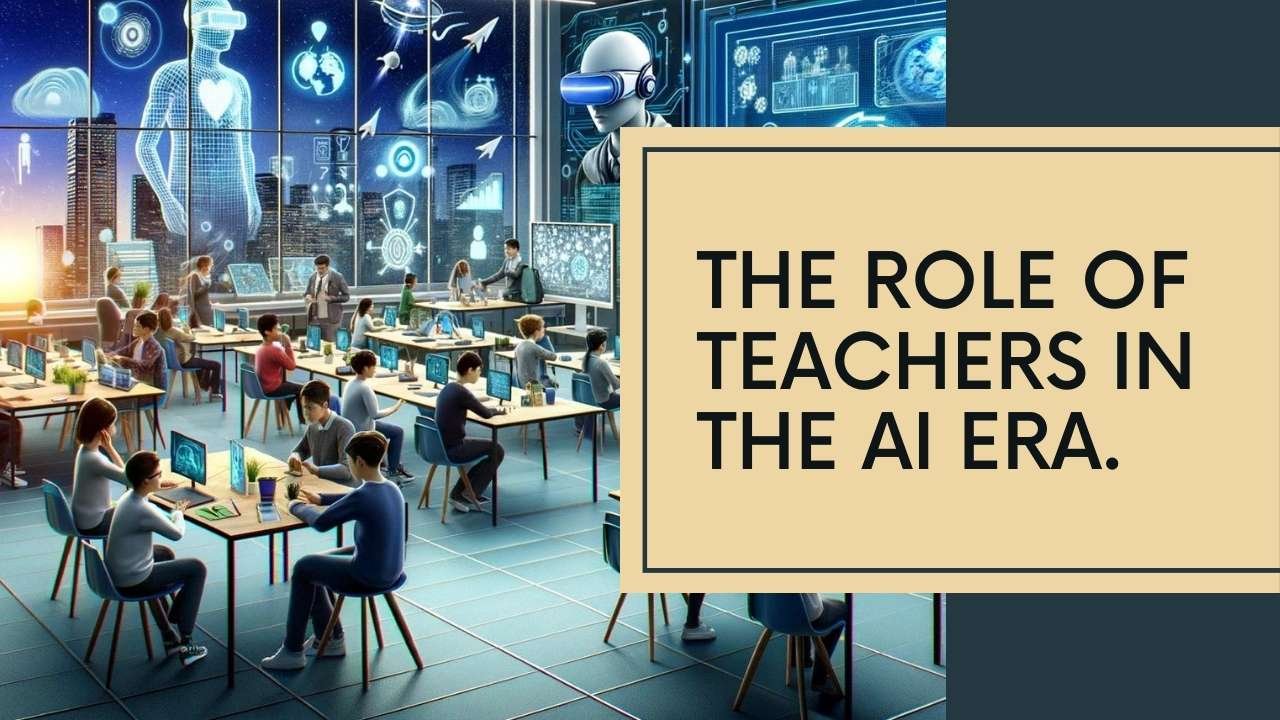


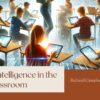




Recent Comments